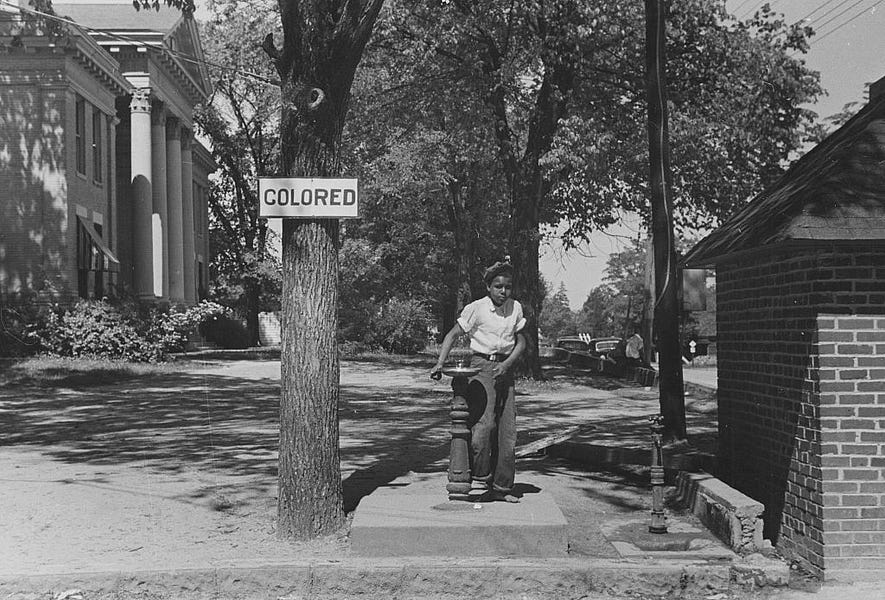The debate over Georgia’s new voting law has been deeply depressing to watch for a number of reasons. The first is that it hasn’t really been a debate so much as a lot of performative shouting from all directions.
The second is that many of the law’s harshest critics don’t know what’s in it, starting with the president of the United States.
“What I’m worried about is how un-American this whole initiative is,” Joe Biden proclaimed in his first press conference as president. “It’s sick. It’s sick … deciding that you’re going to end voting at five o’clock when working people are just getting off work.”
The Washington Post fact-checked this claim and concluded, “There’s no evidence that is the case. The president earns Four Pinocchios.” (It’s the Post’s harshest rating.)
But that wasn’t the worst thing Biden, and other critics, said. The president called the law “Jim Crow for the 21st century.”
Defenders of the legislation say “read the law” or “you don’t know what’s in it.” This is fair. The law isn’t immune to reasonable criticism, but many of its features are fairly typical of many states, including ones controlled by Democrats.
But if you watch these arguments on TV, you’ll notice a frequent bait-and-switch. Defenders will note the ways in which the law isn’t that unusual. The response is to change the subject to Donald Trump. As former Chicago Mayor Rahm Emanuel recently put it on ABC’s This Week, “If Trump had won Georgia, [do] you think they’d be doing this?”
Here’s the problem: Emanuel and other critics are right. Georgia is acting in response to the havoc of Trump’s sore loser schtick. But that isn’t evidence that these laws amount to a “new Jim Crow.”
By all means, heap scorn and ridicule on Trump for undermining faith in elections for his selfish purposes—Lord knows I have. But just because Trump indefensibly put Republican politicians in the position of needing to address “voter integrity” in the wake of the election doesn’t automatically mean what they did is wrong, never mind that it’s Jim Crow. You need to make the argument with actual facts—not just about the law, but about Jim Crow.
That brings me to the most annoying aspect of all this. It’s bad enough not to know what’s in a law you’re comparing to Jim Crow. It’s another thing not to know what Jim Crow was.
Suppressing black votes was certainly a central part of Jim Crow. But comparisons with the new voting law minimize the moral horror of Jim Crow — and the progress we’ve made since. Under Jim Crow, blacks were denied far more meaningful civil rights than voting, starting with the right to life. They were often treated as a lower caste akin to medieval serfs. They couldn’t travel freely. Indeed, a major driver of many Jim Crow laws was the desire to keep blacks’ wages low by preventing them from being able to find work elsewhere. Worse, they could be lynched, beaten, robbed, or raped without meaningful recourse in the courts or sufficient protection from the law. Yes, denying voting rights was part of the evil of Jim Crow, but that was a means to an end: the perpetuation of a morally repugnant system of apartheid.
Whatever view you have of the Georgia GOP’s motives in passing this law, do you truly believe that’s the end goal? You can even believe, as many do, that Georgia Republicans are using discriminatory tactics to suppress turnout in predominantly black precincts. That would be bad. That would be worthy of criticism. But it still wouldn’t mean that this is a return of Jim Crow. It would mean that the Georgia GOP has gotten itself into a panic that the state is trending Democrat and is acting out of desperation to stay in power. If the goal were real Jim Crow, Georgia Republicans would have pushed for it when their power was more secure.
Georgia’s congressional delegation has five black representatives and one black senator. Its state legislature is 27 percent black. The mayor of Atlanta is a black woman. Georgia has a large and politically powerful black middle class, not to mention plenty of black celebrities and 1-percenters. Do we really believe the state is one election law away from a system of legal lynchings and separate water fountains?
If large numbers of people really do believe that, “depressing” doesn’t begin to cover how sad that would be.







Please note that we at The Dispatch hold ourselves, our work, and our commenters to a higher standard than other places on the internet. We welcome comments that foster genuine debate or discussion—including comments critical of us or our work—but responses that include ad hominem attacks on fellow Dispatch members or are intended to stoke fear and anger may be moderated.
With your membership, you only have the ability to comment on The Morning Dispatch articles. Consider upgrading to join the conversation everywhere.